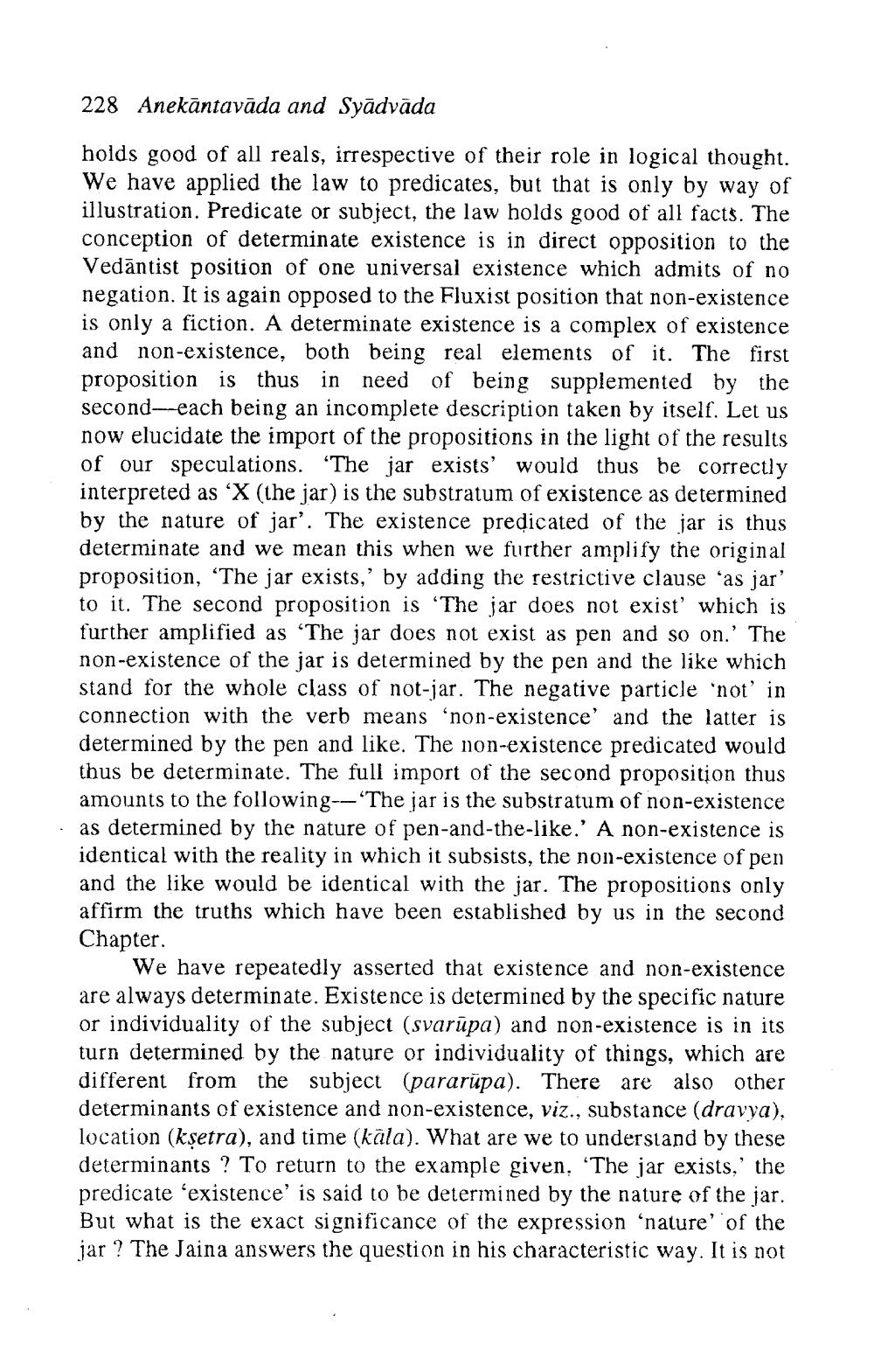________________
228 Anekāntavāda and Syādvāda
holds good of all reals, irrespective of their role in logical thought. We have applied the law to predicates, but that is only by way of illustration. Predicate or subject, the law holds good of all facts. The conception of determinate existence is in direct opposition to the Vedāntist position of one universal existence which admits of no negation. It is again opposed to the Fluxist position that non-existence is only a fiction. A determinate existence is a complex of existence and non-existence, both being real elements of it. The first proposition is thus in need of being supplemented by the second--each being an incomplete description taken by itself. Let us now elucidate the import of the propositions in the light of the results of our speculations. “The jar exists' would thus be correctly interpreted as 'X (the jar) is the substratum of existence as determined by the nature of jar'. The existence predicated of the jar is thus determinate and we mean this when we further amplify the original proposition, 'The jar exists,' by adding the restrictive clause 'as jar' to it. The second proposition is ‘The jar does not exist which is further amplified as “The jar does not exist as pen and so on.' The non-existence of the jar is determined by the pen and the like which stand for the whole class of not-jar. The negative particle 'not in connection with the verb means 'non-existence and the latter is determined by the pen and like. The non-existence predicated would thus be determinate. The full import of the second proposition thus amounts to the following-- ‘The jar is the substratum of non-existence · as determined by the nature of pen-and-the-like.' A non-existence is
identical with the reality in which it subsists, the non-existence of pen and the like would be identical with the jar. The propositions only affirm the truths which have been established by us in th. Chapter
We have repeatedly asserted that existence and non-existence are always determinate. Existence is determined by the specific nature or individuality of the subject (svarūpa) and non-existence is in its turn determined by the nature or individuality of things, which are different from the subject (pararüpa). There are also other determinants of existence and non-existence, viz., substance (dravya). location (kşetra), and time (kāla). What are we to understand by these determinants ? To return to the example given. 'The jar exists,' the predicate 'existence' is said to be determined by the nature of the jar. But what is the exact significance of the expression 'nature' of the jar ? The Jaina answers the question in his characteristic way. It is not




